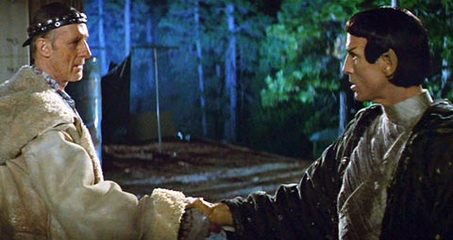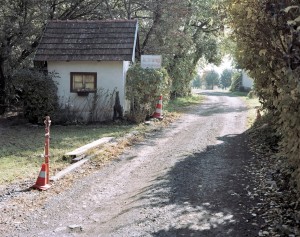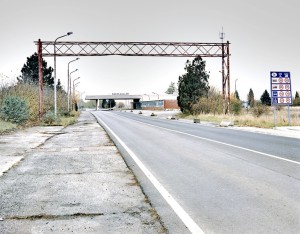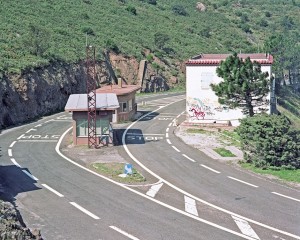Posts filed under Art and Literature
I was me but now he’s gone.
This arrived the other day on my news feeds:
A new study finds 1980s heavy metal fans have matured into responsible adults.
–Tom Jacobs, The Metalhead Kids Are Alright
Pacific Standard (July 7, 2015)
Fade to black, it’s over. Heavy metal has utterly failed.
Shared Article from psmag.com
The Metalhead Kids Are Alright
Researchers find that former metal fans “were significantly happier in their youth, and better adjusted currently” compared to their peers who preferred other musical genres, and to a parallel group of current college students.
Tom Jacobs @ Pacific Standard
Two Sonnets for Memorial Day
(To Jessie Pope,[1] etc.)
Bent double, like old beggars under sacks
Knock-kneed, coughing like hags, we cursed through sludge
Till on the haunting fires we turned our backs
And towards our distant rest began to trudge.
Men marched asleep. Many had lost their boots
But limped on, blood-shod. All went lame; all blind
Drunk with fatigue; deaf even to the hoots
Of disappointed shells that dropped behind.
GAS! Gas! Quick, boys! An ecstasy of fumbling,
Fitting the clumsy helmets just in time
But someone still was yelling out and stumbling
And floundering like a man in fire or in lime.—
Dim, through misty panes and thick green light
As under a green sea, I saw him drowning.In all my dreams, before my helpless sight,
He plunges at me, guttering, choking, drowning.
If in some smothering dreams you too could pace
Behind the wagon that we flung him in
And watch the white eyes writhing in his face,
His hanging face, like a devil’s sick of sin;
If you could hear, at every jolt, the blood
Come gargling from the froth-corrupted lungs,
Obscene as cancer, bitter as the cud
Of vile, incurable sores on innocent tongues,—
My friend, you would not tell with such high zest,
To children ardent for some distant glory
The old lie: DULCE ET DECORUM EST
PRO PATRIA MORI.[2]–Wilfred Owen (Oct. 1917).
The poet, Wilfred Owen began work on this poem in October 1917 while on leave in England. This is his best known poem. He never completed it for publication, because a year later he was dead. On November 4, 1918 he was killed on the front in a meaningless battle for the Sambre–Oise Canal seven days before the warring governments finalized the Armistice.
- [1]Jesse Pope was an Leicester poet who wrote light verse before the Great War and then during the War published a series of patriotic poems in the Daily Mail urging young men to enlist and celebrating patriotic sacrifice, using verse like the following:
Who’s for the Game, the biggest that’s played / The red crashing game of a fight? Who’ll grip and tackle the job unafraid / And who thinks he’d rather sit tight? . . . / Who knows it won’t be a picnic–not much– / Yet eagerly shoulders a gun? / Who would much rather come back with a crutch / Than lie low and be out of the fun?
↩ - [2]A line from the imperial poet Horace’s Odes. In English,
Sweet it is and becoming to die patriotically [= for the patria].
In 1913, shortly before the outbreak of the War, the line was carved into a wall at the Royal Military Academy Sandhurst.↩
Every border-crossing ought to be reduced to so much hipster ruin porn.
Here’s some things as they can and ought to be.
Shared Article from CityLab
Photographing Europe's Abandoned Border Crossings
After nearly 20 years of passport-free travel in parts of Western and Central Europe, many former checkpoints resemble ghost towns.
citylab.com
People, and liberty, are more important than any nation. We don’t need any military frontiers and we don’t need any guard-posts. Every border ought to be as easy to cross as the street in front of your house or the highway from Auburn to Opelika. Abandon all the checkpoints. Open all the borders. End international apartheid, now and forever.
How Intellectual Property promotes the progress of science and the useful arts (cont’d)
Fun fact: So under the current copyright law, almost all books held under copyright by their original authors stay under copyright for the entire life of the author, plus 70 additional years after the death of the author. For works of corporate authorship,
the company that owns the copyright holds it for either 95 years from the date of first publication or 120 years from the date of creation, whichever expires first. To put that in perspective, Paul Avrich’s books on the Russian Anarchists (published in 1967) Voltairine de Cleyre (published in 1978) will become available in the public domain in 2,076 CE — just over 10 years after the invention of warp drive and First Contact with the Vulcans.[1] But at least we’ll be prepared, because the first episode of Star Trek will have finally come out of monopoly a few years before, in September 2061.[2]

See also.
- [1]N.B.: Or, you can pirate a copy of The Russian Anarchists from Libcom now.↩
- [2]Assuming that large media companies make no efforts before 2061 to extend corporate copyright terms even further. Which they almost certainly will.↩







